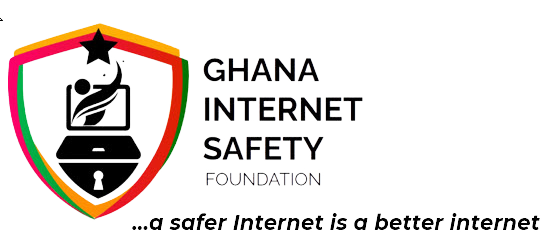
Interesting Statistics From 2017 to 2020 show that Ghana’s cybersecurity readiness score surged from 32.60% to 86.6% according to the ITU’s Global Cybersecurity Index.
As we commemorate Safer Internet Day 2024, Ghana’s strides in cybersecurity readiness are underscored by the statistical improvements above.
It is against this background that the Ghana Internet Safety Foundation (GISF) has emerged as a leading force in championing online safety in the country, particularly among its youth.
Through proactive measures, GISF has tackled cyber trauma and fortified victim support, showcasing a commitment to safeguarding Ghana’s digital community.
GISF’s initiatives encompass comprehensive cyber trauma and online safety training, notably with KNUST peer counselors, fostering a cyber-aware and psychologically resilient student populace.
Recognizing the imperative of grasping cyber threats, emotional resilience, legal awareness, and advocacy for safe digital spaces, GISF underscores collective responsibility and collaboration in promoting effective cyber safety education and practices.
The surge in internet penetration in Ghana underscores the nation’s progress towards cybersecurity development, with statistics revealing approximately 17 million internet users.
The widespread use of social media platforms like WhatsApp, Facebook, and Instagram accentuates the critical need for robust online safety measures, especially for children and adolescents.
Founder and President of GISF, Emmanuel Adinkrah GISF has vocally advocated for heightened stakeholder engagement and education on child internet safety issues, given Ghana’s 79th ranking in the global Child Online Safety Index (COSI).
Aligning with this year’s Safer Internet Day theme, “Together For A Better Internet,” GISF emphasizes the pivotal role of parents and caregivers in fostering a safer online environment for children and young people.
The foundation actively bridges the technological gap between Ghanaian parents and the connected world children inhabit today.
GISF’s endeavors garner support from international bodies like UNICEF, which acknowledges Ghana’s strides in child online protection and advocates for heightened awareness, research, and support for criminal justice responses to child online safety concerns.
By advocating for digital literacy and respectful online conduct, GISF and its partners strive towards a future where the internet is a realm of opportunity rather than peril.
Collaborative efforts with the CSA, SCARS International, and the Ghana Police Cyber Crime Unit exemplify a united front, essential for fortifying the nation’s cyber resilience and protecting its youth.
The GISF President and Founder also touched on GISF advocacy being taken to Schools, Churches, and Mosques to create awareness in celebration of the SID 2024.
“By advocating for child online protection in schools, churches, and mosques, communities can come together to address common concerns and share best practices. Our Key Online Safety Mascot Kofi Smart will be outdoored to the youth very soon.
This collaborative approach fosters a sense of responsibility and solidarity in protecting children from online risks.
Schools, churches, and mosques can play a role in monitoring and preventing access to harmful online content, such as violence, extremism, and inappropriate material.
They can implement guidelines and policies to promote a safe online environment for children and adolescents.
Overall, child online protection advocacy in schools, churches, and mosques is essential for promoting digital literacy, fostering a culture of responsibility, and safeguarding children from online threats,” he said.
